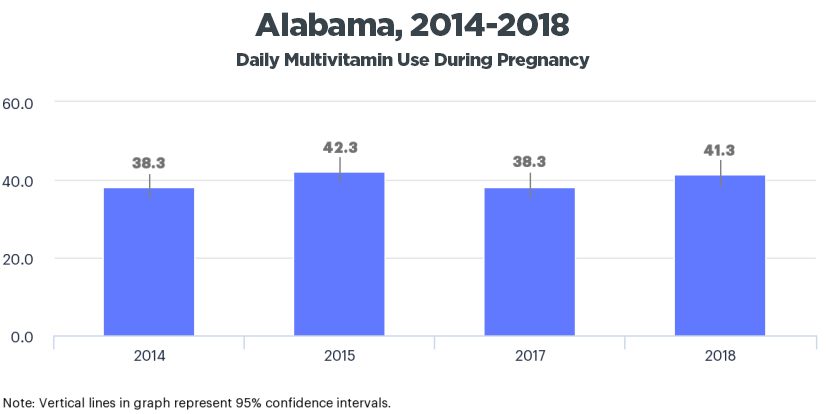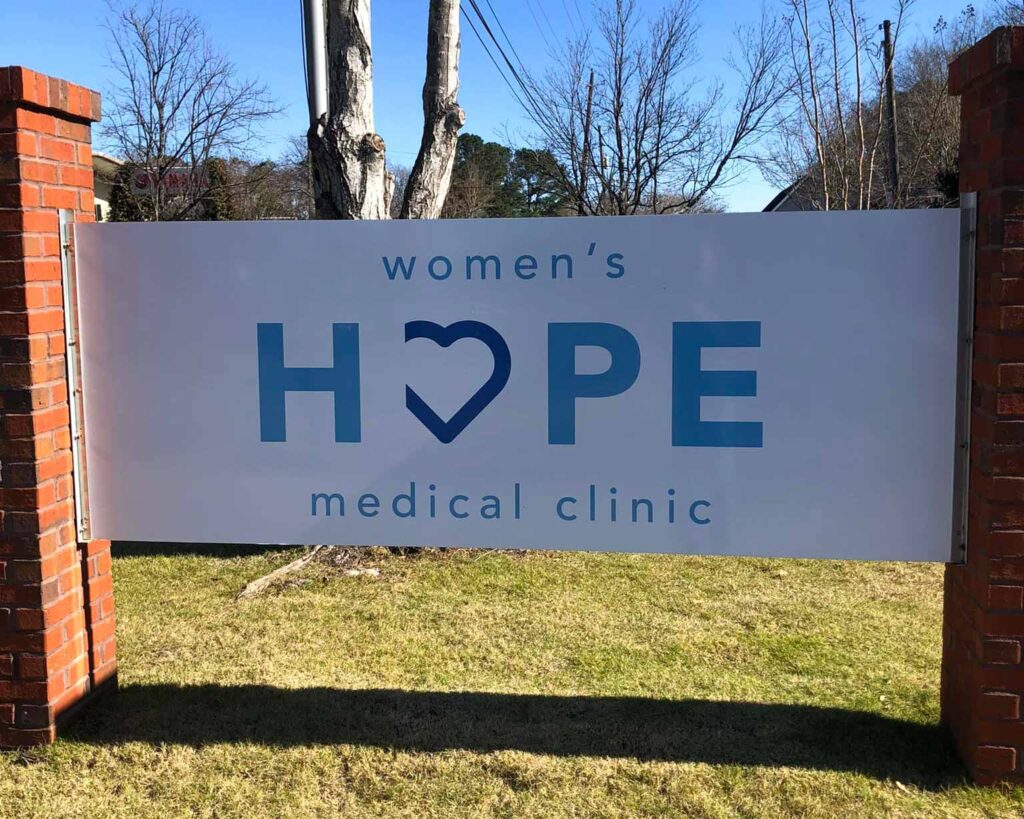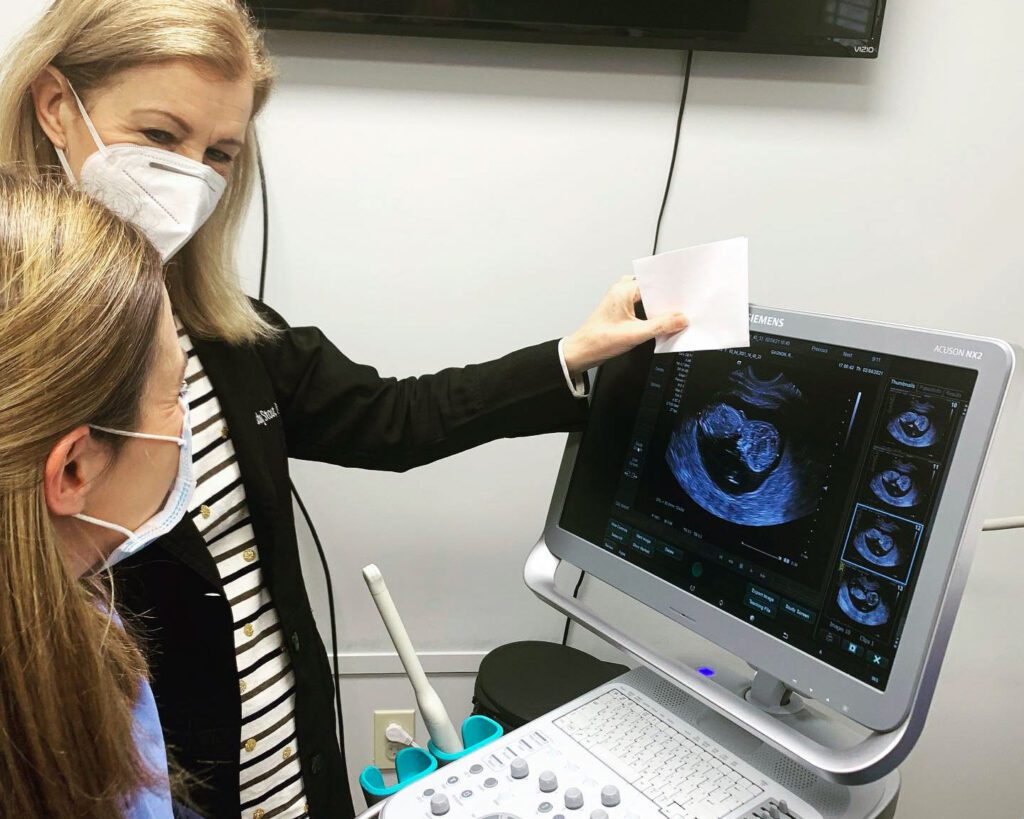Walgreens donations to Vitamin Angels help mothers and children in our own communities and around the world gain access to life-changing vitamins and minerals. Together, we focus on reaching populations facing barriers including access, education, and affordability.
Women’s Hope, a Vitamin Angels Program Partner in Auburn, Alabama, saw “a big need to love on moms” in its community.
Where you live has a big impact on the care you receive when you’re pregnant and have no health insurance.
Alabama, for example, received an F grade in the March of Dimes 2021 Report Card for having its preterm birth rate—the percentage of live births born preterm—climb to a ten-year high of 12.9% in 2020.

In the college town of Auburn, many people find themselves unable to afford healthcare because their jobs don’t include health insurance and they earn just over what they need to qualify for Medicaid. Making matters worse, few if any doctors in the area offer payment plans to uninsured patients.
At the same time, it’s not uncommon for people, regardless of where they live or if they have insurance, to have little understanding of how important prenatal care in the first trimester is to their health—and the health of their baby. In 2020, 20.9% of live births were to women beginning care in the second trimester, and 7.8% were to women receiving late or no prenatal care, according to the March of Dimes.
To reach this underserved population, Vitamin Angels partners with organizations like Women’s Hope Medical Clinic, which has been offering prenatal care and support services since 1983.
In addition to offering pregnancy testing, ultrasounds, parenting classes, a baby boutique for free supplies, single parent support groups, and prenatal care for up to 20 weeks of pregnancy, Women’s Hope provides much-needed prenatal counseling on having a pregnancy that’s as healthy as possible.
Preventing Preterm Labor and Birth Defects
“With every single mother who walks through our doors, we talk about the basics,” explains Margaret Le, RN, Nurse Manager. “We talk about prenatal vitamins, we give them an information packet about eating healthy meals” including what foods and beverages to avoid.
In 2018, only 41.3 percent of mothers in Alabama reported taking a daily multivitamin during the month before getting pregnant, putting them at a higher risk of experiencing neural tube defects (NTDs).

In 2021, Vitamin Angels extended a grant for 378 bottles of prenatal vitamins and minerals for Women’s Hope to share them with clients at no cost, impacting the health of twice the number of lives: the mothers and their babies.
Every single mom that we give those [prenatal vitamins] to is just super appreciative and when we tell them who we get them from, they [are touched that] y’all don’t even know them but you are willing to support them.
Margaret Le, RN
The staff encourages clients to take prenatal vitamins and minerals and come in for regular check-ups, taking care to explain the health benefits of doing so. Prenatal vitamins and minerals with folic acid are known to prevent neural tube defects (NTDs), they tell clients. Or, coming in for regular doctor’s visits can help you discover if you’re at risk of pre-eclampsia even if you’re feeling no symptoms of having high blood pressure.
“Another big part of what we do here on a daily basis is we stay in touch with our moms,” explains Margaret. “Every mom gets multiple follow-ups throughout her pregnancy. Our client advocates text, call or email them just to stay in touch.”
Overcoming Barriers to Care through Empathy
“People make assumptions on the type of clientele and demographics that we might see and I always tell them you shouldn’t make assumptions,” explains Margaret. “We live in a college town. Because of Auburn University, our population is extremely diverse.”
Instead, the staff works to get to know each client.
“We ask: are you financially struggling; are you emotionally struggling; are you physically struggling… sometimes it’s all three,” explains Margaret. “We are here to meet not just their medical needs, we’re here to meet their emotional and their spiritual needs as well.”
Partnering with Vitamin Angels is one way Women’s Hope can continue its mission to provide helpful information in a compassionate environment and change lives for the better.
“That’s one of the things that I love most about being here is that we—and we tell women this all the time—we are truly just here for you,” says Margaret. “We want to be able to help you and meet you where you’re at so that we can help you feel the best you possibly can before you leave.”



Photos Courtesy of Women’s Hope Medical Clinic
